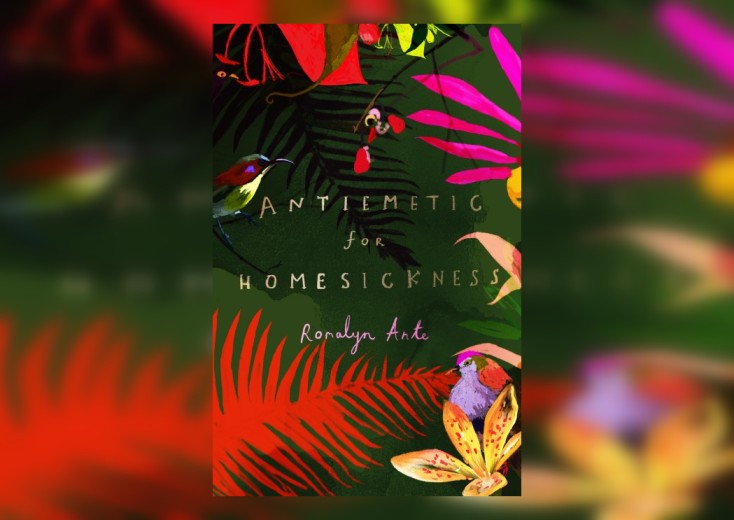Review:
You Too Can Have A Body Like Mine by Alexandra Kleeman
by Leah Sophia Dworkin
—
You Too Can Have A Body Like Mine had been sitting on my coffee table, unopened, next to a not-quite-ripe cantaloupe and an entangled clump of dead iPhone chargers for about a week. Since Alexandra Kleeman’s first novel had been placed there, next to the melon, the title phrase had been resonating with me uncomfortably, creating a dissonant effect that I imagine this type of slogan tends to impart on the contemporary and “thoughtful consumer.” I was slightly seduced by the declarations confidence, and simultaneously skeptical. I’ve learned that these types of seductive promises are always accompanied by predictable, turbulent letdowns. I thought back to the ads I’d responded passionately to as a child, begging my parents to let me order the things that I desperately needed. From the Sea Monkeys that I thought would be ALIVE, AMAZING, A BOWL FULL OF HAPPINESS to the Brazilian Butt Lift DVD that guaranteed I could effectively wiggle my way into the body of a tanned bodacious background dancer with the assistance of a gummy elastic band. Before I even began to read You Too Can Have A Body Like Mine, I found myself enchanted by the familiarity of its promise. At the same time, this temptation was shadowed by a skepticism that was deeply embedded in my nostalgia.
I remembered filling up the Magic Castle with faucet water, and dumping the powdered sea monkeys inside – (as the pamphlet had instructed, STEP ONE in giving life to my new pets). I quickly found that my monkey friends were devoid of the individual characteristics that I had been promised would emerge for my entertainment. Even worse was the fact that their bodies appeared literally identical to the food that I already fed my fish on a nightly basis. After a week or so of feeding the monkeys their Growth Food Packet I could no longer deal with taking care of them. Keeping them alive was feeding my own disappointment. One night before dinner, I finally dumped the monkey-water into my tank of Neon Tetra, who, despite being transparent and electric, were also starting to bore me. The fish ate the monkeys, unaware of the fantastic trademark title that had been given to this particular supper. The Tetra swam back and forth in their tank, sucking the monkeys in, their faces neutral. They ate their dinner and I went downstairs to eat mine, where my father said “I told you so” while I shamefully dipped my fish sticks into ketchup one by one.
Unlike the Sea Monkeys and Butt Lift Video (to no great surprise, my butt remained as is), Kleeman’s novel does not disappoint. Her fortified and hilariously unnerving book is one that maintains and challenges the dissonance that its bold title evokes. There is a determination to exist solely in the immediacy of the present moment, and an inability to escape the past. Individuality is retracted and we are made aware of its dissolution by empathizing with its desire to persist. Kleeman recreates the body as something strange and new, both familiar and alien. Cults are joined, flesh is obsessed over, and commercials morph into life-sustaining rituals; meanwhile, oranges are examined and questioned.
Kleeman has artfully provided her reader with a book that, unlike many contemporary novels, relies on the reader as an active ingredient. Because of the participation that Kleeman demands of her reader, I would be doing the book an injustice if I were to attempt to summarize it, as the experience is one that relies on the act of reading it.
This book is largely about an individual’s participation in and backlash against the force-feeding of consumerism. Despite the theme being one that often lends itself to a certain type of post-modern coolness, Kleeman does not shy away from feelings. There is a lurking sentimentality throughout the novel, a sentimentality that is not at all sweet, but appears as some kind of stubborn residue. The presence of this sentimentality is juxtaposed by a meditative lens: anger, fear, and conflict are communicated through an emotional and physical world that is painfully neutral- we come to regain understanding along with her character through a shared space of non-reaction.
I can only think of how little-me became not so much angry but entirely without hope, sitting in front of my fish tank as a child, watching the inanimate faces of my Tetra inhale the sea monkeys for dinner. Their blank faces, translucent bodies and empty fish-eyes mirrored something back at me that was worse than hatred or spite. Their lack of reaction reflected that my own disappointment was cosmically insignificant. Their non-response diminished the experience of the emotional heft that I required for closure, as if they were denying me the satisfaction of experiencing my own reactivity. I felt more invisible than their bodies looked as they traced endlessly back and forth through their tank. Kleeman’s novel grabs at its strange suburban world with this hard, fighting blankness. There is a neutrality and it is screaming. Her characters are as invisible as they are alive. I would recommend this book to two kinds of people: anyone who eats and anyone who doesn’t.
—
Leah Sophia Dworkin is sitting next to a guy on the subway who’s watching porn on his iPhone with one hand in his poncho. She goes by some other names and one of them is @frumperella



